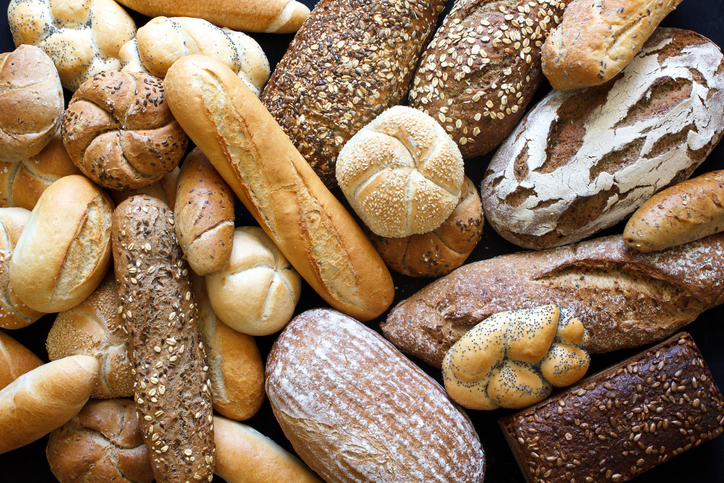
Gluten intolerance and celiac disease affect your digestive tract and your mouth as well. Let’s talk about the relationship!
Gluten-free foods dominate the grocery store aisles. But what exactly is gluten? And how does it affect teeth?
Gluten is a protein found in grains. Cereals, bread, pasta, and beer all contain gluten. When you consume gluten, your body doesn’t break down or digest the protein but instead absorbs it into your small intestine.
Some people, however, cannot absorb gluten. Celiac disease is an autoimmune disorder affecting 2 million people in the U.S., in which gluten damages the intestinal tract. Note the difference from gluten intolerance, an allergic reaction to wheat. Although many symptoms are the same, gluten intolerance doesn’t damage the small intestine as celiac disease can. Although celiac disease is often associated with GI problems, it can affect your oral health. A dentist at Espire Dental can explain the connection between gluten and your teeth further, but let’s look at how not being able to absorb gluten can cause dental problems.
The Link Between Gluten and Your Teeth
Celiac disease not only impairs your ability to absorb gluten but other vital nutrients and vitamins, too. The immune system detects gluten as a harmful substance and responds by attacking the villi, or small projections lining the small intestine. That interferes with the absorption of vitamins D and K, which are needed for strong bones and teeth. Without those nutrients, your teeth enamel erodes (enamel hypoplasia).
A telltale sign of celiac disease is teeth with pitted or lined enamel. The teeth may also show discolorations of varying white, yellow, or brown shades. An Israeli-based study reported children with celiac disease displayed a higher incidence — 66 percent — of enamel hypoplasia. Thinner enamel leads to other dental problems, such as cavities and gum disease. Other indications of celiac disease in the mouth range from a red, swollen tongue to a dry mouth.
Celiac disease often manifests in childhood, which has a significant impact on tooth development. A report from the University of Chicago Celiac Disease Center noted that 27 percent of patients with the disease had delayed eruption of permanent teeth.
Although digestive problems are the first signs of celiac disease and gluten intolerance, your mouth (or your child’s mouth) can also be impacted. After all, that’s where your digestive tract begins! A doctor can diagnose the disorder, but your dentist can spot the signs of celiac disease and offer tips to maintain good oral health despite gluten intolerance.
Taking Care of Your Mouth with Gluten Intolerance
A strict gluten-free diet can manage celiac disease symptoms and improve oral health. But it must be combined with good oral hygiene practices such as daily brushing and fluoride. The Israeli study mentioned earlier noted that children with celiac disease who followed a gluten-free diet and brushed daily displayed lower plaque levels in the mouth.
Fortunately, plenty of gluten-free products are available on the market. But if you adhere to a gluten-free diet, be sure to read the labels carefully. The products may be free of gluten but could contain high amounts of refined carbohydrates and sugars, and we all know by now that sugars and carbs are harmful to your teeth. Choose wisely when going gluten-free!
It Begins With Your Mouth
Schedule an appointment at Espire’s Colorado Springs location today! Our highly trained dentists can check your teeth for signs of celiac disease and suggest tips to keep your mouth and body healthy. Don’t live near our Colorado Springs office? Find one of our other locations near you.
Colorado Springs
8610 Explorer Drive #315
Colorado Springs, CO 80920


